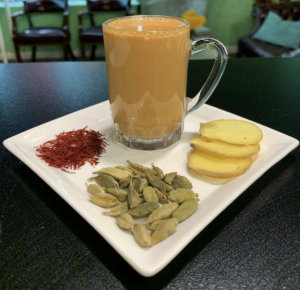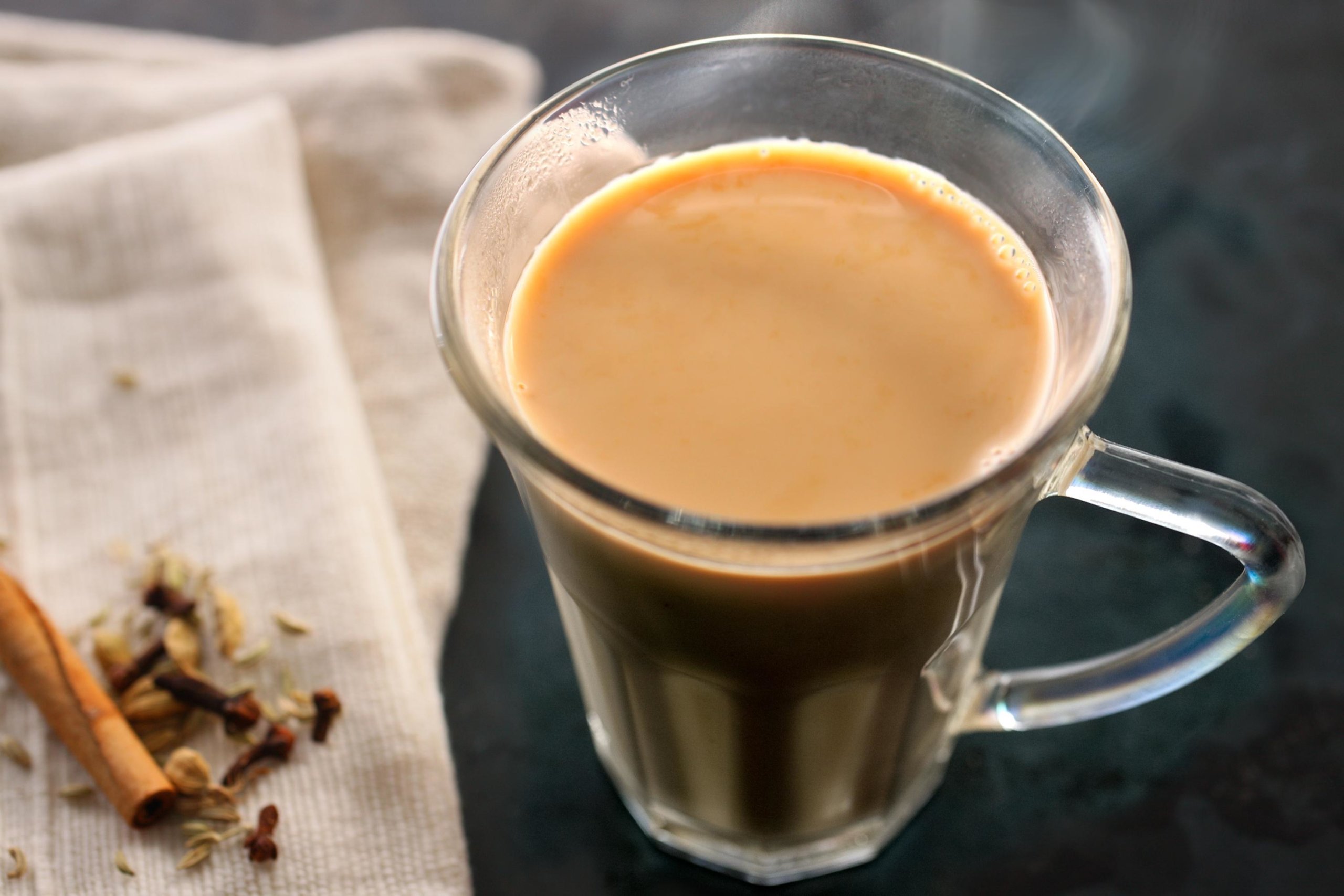What is Karak Chai?
July is Culinary Arts month here at QAIC. In honor of this month, QAIC intern Maha Hamid explored the significance of Karak Chai, a popular beverage in Qatar and beyond. Maha is a senior at Arizona State University and is pursuing a degree in Global Studies.

Karak Chai with saffron, cardamom, & ginger. Photo by Maha Hamid.
Karak Chai is a flavored tea beverage made by brewing black tea leaves with milk and a mixture of aromatic spices and herbs. Originating on the Indian subcontinent, the beverage has gained worldwide popularity, becoming a feature in many coffee and tea houses.
Though Karak is famously known in Qatar’s tradition, you’ll find it quite commonly referred as “Masala Chai” in Pakistan as well as India. Similar to Masala Chai, the Gulf’s version of Karak Chai is made with less spices and is commonly requested to be made stronger. The milk tea is usually made by steeping the tea leaves for a quite some time in order to achieve the strong flavor of tea.
Karak is a comfort drink that is not difficult to make and is promptly accessible no matter one’s geography. A staple at social events, Karak unites individuals, and it is an absolute necessity to drink when loved ones are together. This social aspect of tea drinking is known as tea culture, which is characterized by the manner in which individuals connect with tea, and by the aesthetics encompassing tea drinking.
To preserve these traditions and cultures, we at QAIC serve Karak at our social events to give our attendees a taste of Qatar. According to QAIC’s Executive Director, Fatima Al-Dosari, Karak is “more than a social lubricant in Qatar; it symbolizes its culture. Rich in variety and diversity yet all settling in harmony. Brewing at a pace and ratio to reach a perfect balance of flavor without losing its identity. When offering Karak at QAIC we aspire to extend our hospitality to our guests and the cultural significance it embodies.” What better way than to give visitors an experience of Qatar without actually having to be there?

